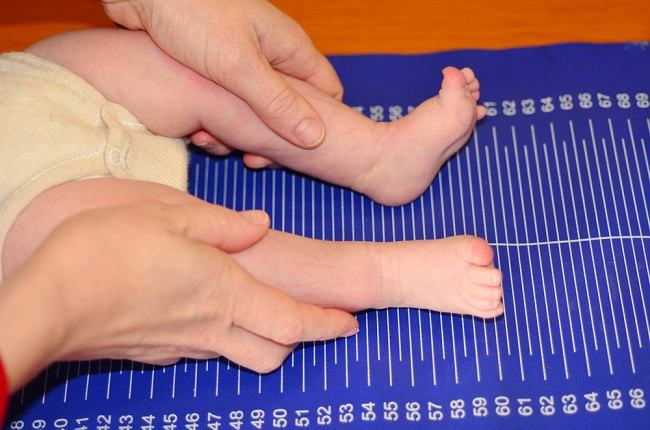There are various ways to prevent pregnancy, and one of them is sterile family planning. This type of family planning is suitable for couples who no longer want to have children because they are permanent. To find out more about spiral KB, see the following discussion.
Sterile family planning or sterilization is the most effective method of preventing pregnancy permanently. There are two types of sterile family planning for women to choose from, namely tubal implants (nonoperative) and tubal ligation (surgical). As for men, sterilization can be done through a vasectomy procedure.

Different Types of Spiral KB for Men and Women
The following is an explanation of the three types of spiral birth control that you can consider:
Tubal implants
Tubal implants are a sterile, non-surgical method of contraception that is performed by inserting two small metals ( estress ) to the fallopian tubes via the vagina and cervix. Each fallopian tube is filled with a metal.
This device will irritate the inner lining of the fallopian tube and leave a scar or scar tissue. This scar over time can close the fallopian tube and prevent sperm from entering to fertilize the egg.
The fallopian tubes can close completely 3 months after this procedure is done. Therefore, you are advised to use other forms of contraception, such as condoms or birth control pills, during the process of thickening the wound.
According to research, the effectiveness of tubal implants in preventing pregnancy reaches 99.8 percent. However, this method has side effects in the form of nausea, vomiting, cramps, dizziness, bleeding, or bleeding.
However, most women are able to return to their normal activities after undergoing this procedure.
Tubal ligation
Tubal ligation is done through a surgical procedure, namely by tying the fallopian tube so that it will block the entry of sperm into the fallopian tube. This procedure can cause permanent infertility.
The process of closing the fallopian tubes is done by introducing gas into the abdominal cavity until it expands. Next, the doctor will make a small incision to reach the fallopian tube.
There are several ways that doctors can do to close the fallopian tube, namely cutting and tying it, removing part of the tube, or blocking the fallopian tube with a medical device.
After undergoing a tubal ligation procedure, there are several things you need to pay attention to, including:
- Get plenty of rest for a few days or at least one day, before returning to your usual activities. Activities can run normally about a week after the procedure is completed.
- Avoid bathing after surgery. You are usually allowed to shower 1 or 2 days after surgery. Also avoid rubbing or pressing the incision area for a week.
- Avoid having sex for a while until the wound starts to heal and you start to feel comfortable. However, consult a doctor first because the length of postoperative recovery varies from person to person.
In addition, the vagina may bleed a little and the stomach may appear swollen from the gas used to expand the stomach. However, this may go away on its own for a day or so.
Your back or shoulders will feel pain due to gas in your stomach. However, this can disappear after the body absorbs the gas.
Vasectomy
Vasectomy is a surgical procedure to cut or bind the sperm ducts to prevent pregnancy. This procedure aims to stop sperm from entering a man's semen.
This means that when a man ejaculates, the semen does not have sperm in it and the process of fertilization of the egg cannot occur.
Vasectomy is almost completely effective in preventing pregnancy. However, vasectomy has no impact on sexual life, such as the ability to erect, ejaculate, and volume of semen.
Vasectomy also has no effect on the production of the hormone testosterone, the hormone that controls sex drive, the depth of the male voice, beard growth, and other masculine traits.
Usually, it takes 2–4 months for the semen to contain absolutely no sperm. Therefore, the doctor will recommend the use of other contraceptives before the vasectomy contraception effect is optimal.
Case yWhat you need to know before doing sterile family planning
Before undergoing this procedure, it's a good idea to know the positive and negative sides of sterile family planning, namely:
Positive side
Besides being effective and permanent in preventing pregnancy, sterile birth control does not affect your hormones. Menstrual cycles and sexual desire are not affected by sterile family planning. You can also be more relaxed and free during sexual intercourse because you don't have to be afraid of pregnancy.
Negative side
Sterile family planning is indeed the most effective in preventing pregnancy. However, the chance to get pregnant is still there, although it rarely happens.
Pregnancy can occur when it turns out that you are pregnant during the procedure or if the tubal implant is not placed properly. If pregnancy occurs, your risk of having an ectopic pregnancy will be higher.
The use of sterile family planning also does not prevent you from getting sexually transmitted diseases. Therefore, you are still advised to use condoms to prevent transmission of the disease.
Remember, sterile birth control is a method to prevent pregnancy that is permanent. After this procedure, you may no longer be able to have children. Some women who undergo sterile family planning may regret it, because there is something that makes them want to have more children.
Sterile family planning procedures, especially tubal ligation, can indeed be restored to normal. However, don't get your hopes up, because the success rate for having children will be very low. Meanwhile, repair of the fallopian tubes cannot be done, if you have a tubal implant.
Consider carefully before you undergo sterile family planning. Discuss again with your partner and make sure you are no longer planning to have children in the future. If you are confused about choosing the right contraceptive, you can consult a gynecologist.









